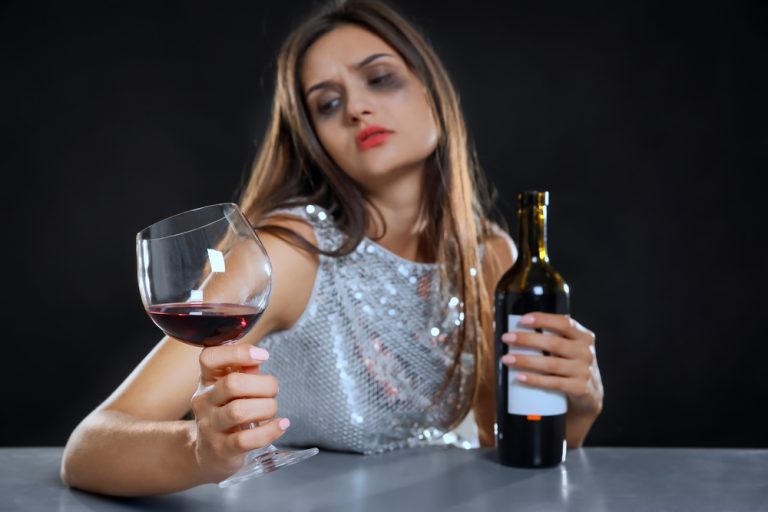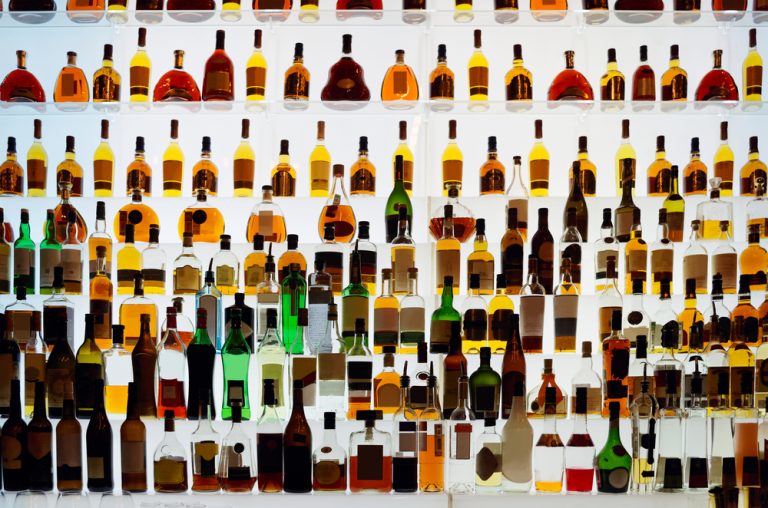Contents
As a general rule, it seems that a more reliable diagnosis comes from evaluating whether bipolar symptoms occur before the onset of the alcoholism or if they persist during sustained abstinence . While mania isn’t typically involved in this type of bipolar disorder, a milder form called hypomania can occur. Those who suffer from this type of bipolar disorder have experienced major depression and hypomania, either at the same time or at separate times. Those who suffer from Bipolar II may find themselves severely fatigued, crying uncontrollably and for no real reason, having recurring thoughts of death or suicide, and even suffering from insomnia or hypersomnia. There is no one solid answer on why the prevalence of alcohol use disorder is higher than average in people with bipolar disorder.
How long does your liver take to recover from alcohol?
If you stop drinking alcohol for 2 weeks, your liver should return to normal.
However, recent preliminary evidence suggests that liver enzymes do not dramatically increase in alcoholic patients who are receiving valproate, even if they are actively drinking . Thus, valproate appears to be a safe and effective medication for alcoholic bipolar patients. Genetic differences appear to affect brain chemistry linked to bipolar disorder. These same traits may also affect the way the brain responds to alcohol and other drugs, increasing the risk of alcohol use disorder and addiction to other drugs. Bipolar I—manic episodes lasting 7 days or more or severe enough to require hospitalization. Other researchers suggest that alcohol use and withdrawal may affect the same brain chemicals that are involved in bipolar disorder symptoms.
Combination Therapy
While many turn to alcohol to ease the negative effects, this often has the opposite effect, making symptoms of bipolar disorder worse. The best sober house living in boston, massachusetts relationship between bipolar disorder and alcohol misuse is complex. There is probably not a straightforward cause-and-effect relationship.
Is alcohol use disorder a mental illness?
The answer is yes, it can be considered one. Alcoholism, or alcohol addiction, is also referred to as Alcohol Use Disorder (AUD). The classification of alcoholism as a diagnosable mental illness doesn't mean that there isn't hope for a life free from alcohol abuse and its related symptoms.
Contact us to learn more about our renowned program and how we can help you or your loved one start the journey toward recovery. Bipolar disorder is a condition that causes cycling between manic and depressive moods, and it has a strong correlation with addiction. Over 60 percent of people with bipolar disorder will also be diagnosed with a substance use disorder at some point in their lives. The rate for alcohol use disorder specifically is nearly 50 percent. Alcohol use disorder and bipolar disorder are both treatable conditions, and long-term continuous treatment can help keep symptoms under control.
Things to Know About Bipolar Disorder and Alcohol Use
The specific direction of this effect could not be predicted from the literature, as it has been minimally studied previously. Bipolar disorder can be an especially difficult illness to live with. The struggles of addiction only make the situation more complicated and painful to experience. Our therapists and counselors are trained to understand the influence of specific psychological issues on substance abuse.
- Unfortunately, several studies have reported that substance abuse is a predictor of poor response of bipolar disorder to lithium.
- Those who have Bipolar II Disorder tend to view the hypomanic episodes as a positive period of relief from depression.
- We link primary sources — including studies, scientific references, and statistics — within each article and also list them in the resources section at the bottom of our articles.
The researchers concluded that alcoholism is often a complication of bipolar disorder rather than a risk factor for it. There is also evidence that people with primary alcohol use disorder 15 benefits of staying sober may be better able to control their mood swings if they are able to stop drinking. Researchers propose reasons for the strong relationship between alcoholism and bipolar disorder.
Psychological Treatments for Bipolar Disorder
What follows is the vicious cycle of addiction as their substance abuse worsens their mental health, and their disorder continues to fuel their drinking. Namely, the primary alcoholism group exhibited a less severe bipolar course of illness than the primary bipolar disorder group. Since excessive drinking can trigger mania or depression, the behavior is especially concerning for a person with bipolar disorder. Rapid or drastic mood swings can be challenging to manage as is, let alone with alcoholism. This is why dual diagnosis rehab is vital for individuals with manic depression and AUD. The primary traits of bipolar disorder are episodes of mania and depression .
Symptoms of bipolar disorder, such as manic moods or depression, may be triggered by chronic alcohol abuse or withdrawal. Clinical researchers believe that brain chemistry may influence both bipolar disorder and substance abuse. Individuals diagnosed with bipolar disorder often have abnormal levels of serotonin, dopamine, and norepinephrine compared with the brains of healthy people.
Increased medication compliance with valproate may be an important factor in selecting a mood stabilizer for alcoholic bipolar patients. The researchers found that those in group 2 had a significantly earlier onset of bipolar disorder than those in the other groups. They also reported that those in groups 2 and 3 had significantly higher rates of suicide attempts than group 1. The individuals with primary alcoholism had fewer episodes of mood disorder in the follow-up, which may mean that they had a less severe form of bipolar disorder. Although not a formal diagnosis, during a manic episode people with bipolar disorder can have what is called a “bipolar blackout,” which means they have trouble remembering their actions.

As a general rule, it seems appropriate to diagnose bipolar disorder if the symptoms clearly occur before the onset of the alcoholism or if they persist during periods of sustained abstinence. The adequate amount of abstinence for diagnostic purposes has not been clearly defined. Family history and severity of symptoms should also factor into diagnostic considerations. Given that bipolar disorder and substance abuse co–occur so frequently, it also makes sense to screen for substance abuse in people seeking treatment for bipolar disorder.
Diagnosing Alcohol Use Disorder
Bipolar disorder and alcohol use disorder are often treated separately, but when an individual has both conditions it’s best to treat these co-occurring conditions at the same time. Treating one but not the other is likely to cause symptoms of the other to intensify. Having both conditions at the same time without treatment can increase symptoms such as hopelessness, mood swings and out-of-control behavior. It’s very common for people with bipolar disorder to misuse mind-altering substances including alcohol. There are several reasons there’s such a strong relationship between bipolar disorder and alcohol use disorder.
It is very likely that this relationship is not simply a reflection of cause and effect but rather that it is complex and bidirectional. There are a number of disorders in the bipolar spectrum, including bipolar I disorder, bipolar II disorder, and cyclothymia. Bipolar I disorder is the most severe; it is characterized by manic episodes that last for at least a week and depressive episodes that last for at least 2 weeks. Patients who are fully manic often require hospitalization to decrease the risk of harming themselves or others.
Also known as Bipolar I disorder, mania occurs when someone has manic episodes that last at least seven days and are accompanied by psychotic features. In extreme cases, mania might result in the person needing to be hospitalized in order to prevent them from doing harm to either themselves or others. During a manic episode, someone might feel very “up”, elated, or jumpy with tons of energy. They might also have trouble sleeping and feel irritable or be prone to risky or reckless behavior. Finally, the type of bipolar disorder one has might impact how their alcohol disorder progresses and affects them. The same study showed that alcohol use disorder made symptoms of Bipolar Disorder more severe in those with Bipolar type 1.
To receive a diagnosis of bipolar 1 disorder, you must have experienced at least one episode of mania. This episode may precede or follow an episode of depression, but isn’t necessary. Alcohol dependence is characterized by a craving for alcohol, physical dependence on alcohol, an inability to control drinking, and an increasing tolerance for alcohol. Alcohol abuse usually begins in early adulthood and is an early step towards alcohol dependence.
A medical professional can diagnose the disorder through a face-to-face interview. The interview will include detailed questions about your symptoms, your mental health history and your family’s. If left untreated, alcohol dependence and withdrawal are likely to worsen mood symptoms forming a vicious cycle of alcohol use and mood instability. There is some evidence, however, that with effective treatment of their mood symptoms, people can achieve remission of their alcoholism.
Someone who has both conditions co-occurring has what professionals call a dual diagnosis. Treatment will require the expertise of mental health professionals who specialize in the treatment of both disorders. It has been shown that treating bipolar disorder will likely have a positive effect on the person’s AUD. It is very important to differentiate between alcohol-induced symptoms from actual bipolar illness. This can be difficult because chronic heavy alcohol use and withdrawal can mimic many psychiatric disorders.

During a bipolar blackout, a person may engage in behavior that is impulsive or risky. Using alcohol or other substances can exacerbate the risk for this. Research indicates a person will experience a decrease in functioning, an exacerbation of manic or depressive symptoms, and a higher risk of suicide when these conditions co-occur. In addition, experiencing bipolar disorder and AUD together can cause longer-lasting symptoms and a poorer response to treatment. Also known as cyclothymia, hypomania is a milder form of bipolar disorder.
ADDICTION TYPES
In some cases, a mental health professional might choose to go the medication route when treating alcohol and bipolar disorders. These medications may include mood stabilizers, antipsychotic medications, antidepressants, or even lithium. Lithium is specifically used in the treatment of bipolar disorder patients because it helps stabilize them quickly. Before beginning any sort of medication treatment, the patient and their doctor will discuss options as well as dosage.
Experts characterize Bipolar II Disorder by fluctuations in mood from depression to hypomania which occur over a period of time. If someone dear to you is battling co-occurring alcohol use disorder and bipolar disorder, we encourage you to contact us. The addiction specialists at Northbound Treatment can walk you through the how to relax your mind after a ridiculously hard day at work best way to approach your loved one and guide them to an appropriate rehab program. Our facilities offer detox, inpatient rehabilitation, outpatient treatment, and aftercare services. Diagnosing bipolar disorder in the face of alcohol abuse can be difficult because the symptoms can mimic nearly any psychiatric disorder.
Despite limitations, this study directly extends previous work exploring the associations between alcohol-use and bipolar disorders. Additionally, it reinforces prior findings that there is a subgroup of bipolar patients who may require several years of alcohol abuse before their mood disorders are manifest. These results support the hypothesis that differences in relative ages at onset of alcohol-use and bipolar disorders in patients with both conditions differentially affect the early course of illness.